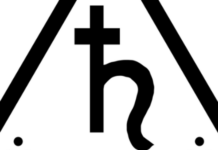From: Fenwick Rysen
Newsgroups: alt.magick.chaos
Subject: Re: one other question — egregores
Date: 1 Sep 1999 16:10:35 GMT
Organization: Chaos Matrix (www.chaosmatrix.com)
lo eskis i
WOW! Two good questions in the same day! Is a.m.c. coming back from the dead? No, it’s probably just the statistical good day we’re allowed after a year of crap.
Quoth Jim Mooney (cybercoyote@mindspring.com):
<< Of the three books I just got on Chaos Magic, they all mention egregores, but there is not much of a definition of the term, except by context. Could someone here give me a good definition >>
Well, the best place to look is any decent dictionary. I’d give you the definition out of the copy of Webster’s Ninth New Collegiate that I keep on my desk, but it’s not a good dictionary—it doesn’t even have it in there. Essentially, “egregore” is an older English word that seems to be fading out of use. It refers to the “spirit of a thing,” usually referring to some organization humans create (clubs, states, fraternities, counties, etc.) that summates its principles, beliefs, and goals, and guides people in accomplishing them.
A good example of such an egregore is when someone say a project has “taken on a life of its own.”
That’s a traditional egregore. In chaos magick, it’s slightly different. I consider it as part of a fluid continuum describing the strength of an entity. You start out with dumb, unintelligent sigils—these just represent something, but don’t actually think. Charge a sigil long enough, and you’ll end up with a servitor, which is usually either completely stupid but capable of doing complex tasks, all the way up to being able to think on its own and deduce things in its operation.
But when a servitor gets really big, what happens to it? The moment it becomes more than one person can handle, I consider it an egregore. At this point, it becomes capable of making some of its own demands, guiding its own work (though usually along the lines of the original goal of the people who created it) and in general “taking on a life of its own.”
Once you get bigger than this, you get a godform: something that has grown so strong that the people involved with it take up a subservient relationship, often worshipping it, or appealing to it for help. (My apologies to any gods not created in this fashion who may become offended by such a simple explanation for their existence.)
So you get
SIGIL –> SERVITOR –> EGREGORE –> GODFORM
Or at least, that how it works in my own little twisted version of reality. If it makes sense to you, use it, if not, scrap it and try something else. Remember, chaos magick is about whatever works for *you*, so you don’t need to adopt any of my own explanations or the baggage that comes with them unless you want to. Get a few other people’s opinions, do some reading, and formulate your own views.
Big Evil Corporations (or good ones, for that matter) can be considered a kind of egregore. Hmm….. “Legal Entity”….. Might be something there worth playing with.
Good luck to you. In Life, Love, and Laughter ___ o | –Fenwick Rysen http://www.chaosmatrix.com / ICQ:3699476, Nick:”Fenwick” .__|__. | ___ | “The only prevalent characteristic of chaotes is their / ability to confuse you beyond all hope of rescue.” | —Mathias Karlsson







